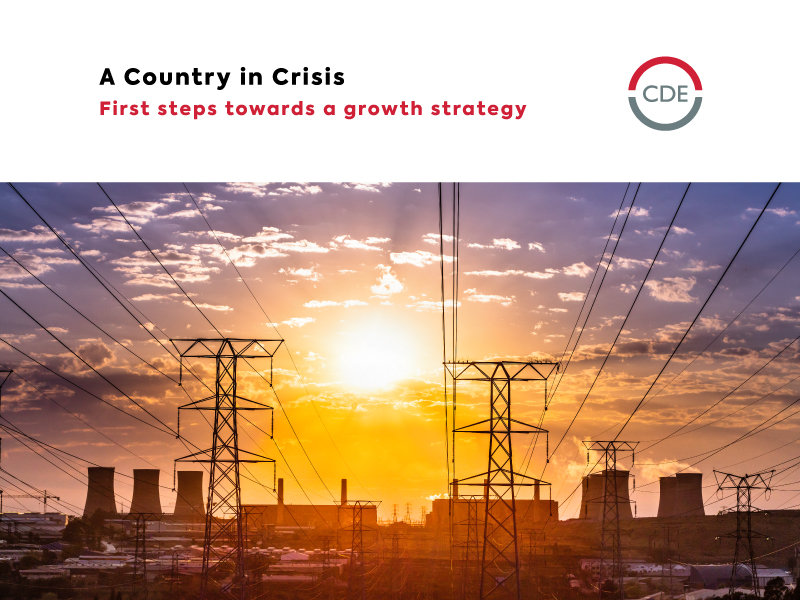
CDE called today for the president’s recently announced review of the regulations that hamper small business to include input from business.
Welcoming the announcement of this review in the state of the nation address, CDE executive director Ann Bernstein said: ‘Our research highlighted the isolation of government efforts with respect to the development of its SMME promotion strategy.
In this of all areas, the private sector has a real contribution to make. We strongly urge that this presidential regulatory review include a substantial contribution from the private sector and more importantly from entrepreneurs themselves.’
The new CDE report, Key to Growth – supporting SA’s emerging entrepreneurs, is a comprehensive study of the country’s attempts to support and promote small business.
CDE research confirms what many others have been intimating. ‘Government’s support for entrepreneurship in SA has been largely misdirected. It is time to accept the failure of the current approach.’
Government’s strategy tries to serve too many purposes. Support for entrepreneurs has often been used as a vehicle for poverty relief rather than wealth creation. The costly new bureaucracy that aims to deliver finance and skills training to emergent entrepreneurs often misses its target. As a result, there have been institutional failures and very high default rates amongst those who have been lent money while training and advice has largely been provided and managed by people with no business experience.
Bernstein says: ‘There is a better approach available.’
‘Create a facilitative, hospitable environment for small business – improve the regulatory climate, ensure cheap and effective infrastructure, encourage public private partnerships. This will do more to encourage aspirant entrepreneurs than relying on bureaucratic delivery of financial and other support.’
Government should:
- Reduce the costs of doing business in SA: Urgently appoint a high level public-private task team to make recommendations for reducing the costs of doing business in SA. Business costs include; security against crime; complex tax regulations, special levies that are added to the tax burden; labour costs including complying with complex labour regulations; infrastructure costs; delays in the granting of work permits for foreigners
- Establish a Regulatory Impact Unit in the presidency to follow international best practice in fostering private sector development, by reviewing all proposed legislation to assess its potential impact on the costs of doing business
- Move away from the fallacy of finance: Conversations with successful South African entrepreneurs bear out the error of over-concentrating on access to finance. In the health sector, tourism, hospitality, information technology and banking the stories repeat themselves. The country’s successful companies started with a great idea championed by risk takers and their own capital. The First Rand Group started initially with R10, 000 of the founders’ own money. Dimension Data started with even less.
- In the long run, education is key: Government must ensure that its achievements with respect to access to education are now matched by similar dramatic, achievements with respect to quality of education for poorer South Africans. This will require ‘out the box thinking’ and much greater involvement of the private sector in order to maximize the benefits of markets and competition, if poor citizens are to get the education they deserve. This in turn will provide the skills and confidence that some of them will take forward into founding their own businesses.
According to Bernstein, CDE’s research shows that South Africa must get the environment right for business now and promote successful entrepreneurs as the new ‘struggle heroes’. SA has done far too little to recognize, analyse and celebrate the success of SA’s black entrepreneurs who have ‘done it on their own’.
– CDE



